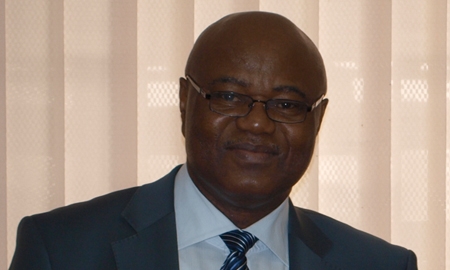
CEO of Egbin Power Plant Mike Uzoigwe is confident that the future of Nigeria’s power sector is bright, despite an admittedly dark past. He laments that the country’s gas, coal, and oil are lying to waste, awaiting proper investors who will develop their full potential.
Although the resources to fuel power plants are abundant, the country is still only capable of producing a total of 3,500 MW at any given time, which does not satisfy the developing nation’s growing need for power.
Mr Uzoigwe hopes to see the national power production capacity increase to 40,000MW by 2020 as a result of Vision 2020-20, a number of national policies set forth in 2009 to bring Nigeria’s economy into the world’s top 20 by the year 2020. This still may be possible if current economic trends continue.
The Nigerian government sees such potential that it recently invested 2 billion naira (£8 million) into the power sector, and thanks to Mr Uzoigwe’s management at Egbin Power Plant, the money has been put to excellent use. Over the years he has been able to cut the cost of operation dramatically by educating engineers to do on-sight repair work, instead of contracting foreigners. When outside help is brought in however, he ensures that workers learn the techniques for future repairs. Subsequently, the company has become more self-sufficient than ever, and eager to direct new funding toward making improvements and expanding.
“The whole of West Africa lacks consistent power,” Egbin’s CEO explains, which indicates that expanding beyond Nigeria’s borders by exporting what is produced in his plant would be easy. There is potential to expand and a market in which to do so.
Since it began operations in 1987, Egbin Power Plant in Ikorodu, Lagos State, has been the largest power station in both Nigeria and the entire West African sub-region. It is the only one capable of producing more than 1,000MW of power and has the highest percentage of available production of any plant in the country, even after so many years of operation. Controls for the national power grid are also located at Egbin, which makes it the most critical plant in the country.
Egbin comprises six 220MW separate boiler turbine units that create power with steam, which is produced at high pressures by heating water with natural gas. In the past, the station has lacked the investment capital needed for expansion, a fact that is evident as it struggles to distribute more than one-third of the country’s available 4,200MW to a population of some 170 million. It seems however, that tables are turning.
Changes in government, national policies, and solid plans for the privatisation of the sector have had positive results for Nigeria’s economy. Mr Uzoigwe sees how the changes and the prospect of adjusted tariffs have made the generation market more attractive for foreign and domestic investors alike. He says they have learned from their mistakes and are now implementing the kinds of policies that promote preventative maintenance of vital machinery and company growth.
0 COMMENTS